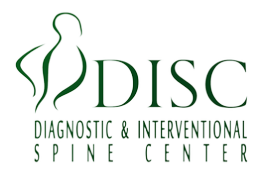Q1: What are PRP Injections, and how do they work? A1: PRP stands for Platelet-Rich Plasma. It’s a treatment that uses a patient’s own blood to promote healing. Here’s how it works:
- A small amount of your blood is drawn.
- The blood is processed to separate the platelets and plasma from other components.
- The concentrated platelets, which are rich in growth factors, are injected into the affected area.
- These growth factors stimulate tissue repair and regeneration.
Q2: What conditions can PRP Injections help treat at The Diagnostic and Interventional Spine Center? A2: PRP Injections are commonly used to treat a range of spine-related conditions, including:
- Degenerative disc disease
- Herniated discs
- Facet joint arthritis
- Sciatica
- Spinal stenosis
- Chronic back pain
- Neck pain
- And more
Q3: Are PRP Injections safe? A3: Yes, PRP Injections are generally considered safe because they use your body’s natural components. There is a minimal risk of infection or allergic reaction since it’s your blood being used.
Q4: What is the process for receiving PRP Injections at our center? A4: The process typically involves the following steps:
- Consultation with our spine specialist to determine if PRP Injections are appropriate for your condition.
- Blood draw.
- PRP preparation.
- Ultrasound or fluoroscopy-guided injection of PRP into the affected area.
- Post-treatment monitoring and follow-up care.
Q5: How long does it take to see results from PRP Injections? A5: The time it takes to experience improvement can vary from person to person and depends on the specific condition being treated. Some patients notice improvements within a few weeks, while others may require multiple injections for optimal results.
Q6: Are there any side effects or risks associated with PRP Injections? A6: The most common side effects are mild and include temporary pain or swelling at the injection site. Serious complications are rare, and your doctor will discuss potential risks during the consultation.
Q7: Is PRP an alternative to surgery for spine conditions? A7: PRP Injections can be an alternative to surgery for some patients, especially those with mild to moderate spine issues. It’s often considered before exploring surgical options.
Q8: Does insurance cover PRP Injections? A8: Insurance coverage for PRP Injections can vary. Our team will work with you to determine your coverage and discuss payment options if needed.
